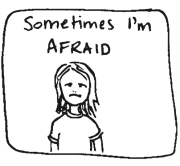The modern way of doing things is strikingly superior to any other … as long as it is measured in terms of value for money.
—Zygmunt Bauman, Thinking Sociologically
Today I’m going to reveal my Inner Nerd in order to reveal my Inner Modernist.
One of the discussions we had, early on during the course last week, touched on what Debra called ‘keeping your ducks in a row‘.
In the context of mindfulness, this is reference to needing to maintain control over your external life.
When I heard Debra speaking about this, I immediately thought of Zygmunt Bauman.
Unleash the sociology nerd …
In his book Thinking Sociologically, Bauman (with Tim May) discusses numerous binary lenses. Not all of these binaries make sense (safety and freedom, for instance) when you put on differently-framed goggles.
 Nevertheless, one of these interesting binaries is order and chaos.
Nevertheless, one of these interesting binaries is order and chaos.
Modernist thought, Bauman writes, is marked by an obsession with evidence, visuality and visibility.
 The segmentation and categorisation of our world—the ordering of public life—while revolutionary and admirable … is, however, bound to fail.
The segmentation and categorisation of our world—the ordering of public life—while revolutionary and admirable … is, however, bound to fail.
In finding solutions to the chaos … The more other factors are left out of account in the process, the shorter, cheaper and thus more rational will be the recommendations provided by the team given the task of ‘solving’ …
The struggle is bound to remain inconclusive because the struggle itself is the most important obstacle to its success.
—Zygmunt Bauman, Thinking Sociologically
I’m revisiting this idea this week because in the past few days we’ve been talking about values.
As Emily puts it:
When we’re living in alignment with our values, we tend to feel more alive, present, engaged, peaceful, and fulfilled – even during times of challenge. When we’re out of alignment, we tend to feel depleted, stressed, desperate, and stuck.
—Emily Bennington
The correlation I’ve made here is that our plans for action in the world, our surroundings, our processes and planning—are often mistakenly our measure of success. We strive for external approval, we tick boxes, we write to-do lists, we look to trendspotters and fashion mavens (and our peers) for guidance … in order that we have the cleanest process, the letters after our name, the better job …
But many thing in this life just are out of our control.
This is a lesson that hits hard when you become a parent. It came home to me almost the moment I became pregnant.
 I had a stimulating, fast-paced job in the political bureau of the national television broadcaster in Australia’s Parliament House. I was working my way towards a career in television. I figured (after I’d got over the surprise of being pregnant) that I’d take maternity leave, have the baby, go back to work after a while …
I had a stimulating, fast-paced job in the political bureau of the national television broadcaster in Australia’s Parliament House. I was working my way towards a career in television. I figured (after I’d got over the surprise of being pregnant) that I’d take maternity leave, have the baby, go back to work after a while …
But then I started vomiting in office rubbish bins during a federal election campaign. It wasn’t an especially magnificent look. It seemed like my body was telling me to STOP. And that wasn’t part of the plan.
Life—and parenting especially—is full of these moments. I has been for me, anyway. And each time I think I’m getting better at managing my environment, my non-automaton-not-robot-offspring throw me a new challenge. Like turning into teenagers.
A reminder that life is always changing.
This week, we were tasked with writing a list of our values in life, because (thanks Emily!):
… getting clear on what matters most is one of the most effective tools for helping us BE our highest self in order to reach our highest goals.
Separating our values from our goals is a useful exercise. Writers often think about this separation as the difference between PLOT (or action) and THEME (or ideas). The idea being that themes are good fodder for getting to the bottom of character motivation.
It can be hard to separate the two when you first start thinking about this stuff, but my tip for this is:
Goals work in specific contexts.
Values are transportable.
So, when it comes to keeping ducks in a row, and bowing to the Modernist condition, it’s good to know that these things are EXTERNAL. And that when we live in alignment with our INNER values we need not chase the ducks or try to maintain order in the hopes that this will make us happy.
*



